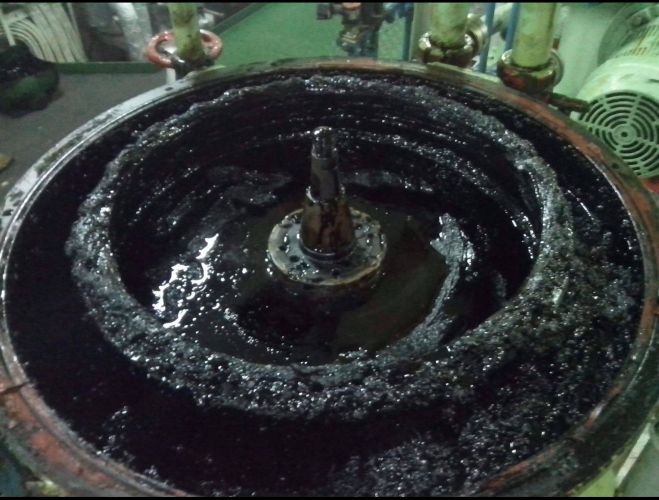FAQ: What steps to be taken in case the ship crew suspects the specific fuel in use on board to be a possible cause of operational issues

Marine fuels consist of a wide range of hydrocarbons from sources such as petroleum crude oil, synthetic or renewable sources, shale oil, oil sands and where specifically agreed, fatty acid methyl ester(s) (FAME).
As the buyer cannot control the composition of the fuel as delivered, it is the responsibility of fuel producers, suppliers, traders, fuel terminals and supply facilities to have in place adequate quality control procedures to ensure that the fuel supplied to the ship meets all requirements specified in ISO 8217.
While such occurrences are infrequent, and despite the efforts of the ship to appropriately manage the fuel by applying best industry practices, marine fuel that meets the characteristics of ISO 8217 can subsequently cause operational issues with potential damage and loss of power and propulsion.
It can come into question whether the fuel fails to meet the general requirements of this document, in particular Clause 5 of ISO 8217.
In cases where a ship suspects the specific fuel in use on board to be the possible cause of an operational issue, applicable evidence should be gathered to support correct storage, cleaning, handling and use of the fuel and further investigation of the cause of the problem.
Such evidence includes but is not limited to:
- logging the case in detail and chronological sequence of events;
- collecting in-use fuel system samples for comparison to previous bunkers in use;
- documenting and securing the evidence leading up to, during and after the operational problem was experienced;
- records of any mitigating actions taken;
- Furthermore, additional analytical investigation can be considered.
It is challenging to predict the potential behaviour of fuel and whether it meets Clause 5 solely based on the presence of what can be perceived as deleterious materials. If, however, cause and effect between the presence of one or more chemical species and operational issues has factually been ascertained, the fuel is deemed to have not met this document.
The following list identifies a number of chemical species or materials but is not exhaustive, where experiences have shown strong links between the chemical species and operational problems
— Organic chlorides (chlorinated hydrocarbons), corrosion of ship’s fuel system, and other engine components.
For dispute resolution, EN 14077 should be used to measure the total organic halogen content as chlorine. There are other investigative techniques Gas chromatography mass spectrometry (GC-MS)] being used in the industry to screen for organic chloride compounds, however, they lack a standardised test methods which include the required test precision data.
— Polymers such as polystyrene, polyethene, polymethacrylates: filter blocking and fuel pump sticking
— Inorganic acids
Reference: ISO 8217:2024
